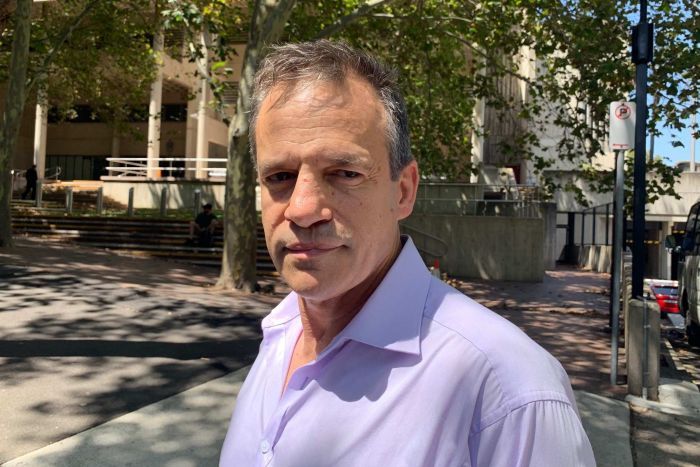‘The war on drugs doesn’t work’: A former ice user appeals for new ways to tackle addiction


Ten years ago, Paul Viney had a million-dollar house in Sydney's eastern suburbs, ran a successful event management company and lived in a whirl of partying as a social drug user.
- Paul Viney is one of 35 people who gave their story of drug use to the special commission into ice
- The Commissioner will deliver its report to the NSW Governor on Tuesday
- Mr Viney says issues include that no help with rehabilitation is offered in prisons
But by 2015, he was homeless, suicidal and in prison for drug-dealing after his life spiralled out of control, lost in the grip of ice.
Now free from both prison and his addiction after a lengthy stint in rehab, he says he wouldn't change his past.
"I wouldn't take back anything I've been through," he says. "It has influenced my opinions on a lot of things and influenced who I am.
"I embrace it, rather than deny it."

He submitted his real-life insights to the Special Commission of Inquiry into the Drug 'Ice'.
He says ice is as much in the suburbs as it is inner-city alleys, drugs are rife in jail and the prison system is completely obstructive to inmates seeking help for addiction.
Mr Viney is one of 35 people who shared their story of drug use among the 250 submissions to the commission, which will deliver its report to the NSW Governor on Tuesday.
He had been using drugs socially for 20 years when, he says, his business partner absconded with a large sum of money.
Mr Viney's ice use accelerated and his life fell apart.
"I slipped into a period of depression and found it difficult to go on, and it was an escape. I was avoiding the world through the use of drugs."
Unlike other drugs, where hits are temporary, he believes ice has a deeper impact.
"Ice is insidious in that it creeps up on you. It gives you a false sense of self," he says.
"It invests itself into your person and the personality you have and it stays there with you. It allows you to think you're OK and you're not."

He says he spent four years in a cycle of ice, sex and alcohol and turned to dealing to make money.
He was busted in 2015 by an undercover police witness and spent 17 months remanded in custody at Parklea and then Wellington correctional centres.
"Jail was basically a waste of time," he says.
"It is a complete waste of life. There's nothing you're given to do that will help you in the future."

Drugs of any kind were available at any time, smuggled in by visitors.
Conversely, he says, he limited his use because the needle hygiene was "alarming" and the costs "exorbitant".
He wasn't at any time offered access to drug programs or counselling.
He and other inmates were aware that time in residential rehab programs would be taken into account in sentencing, but there was no clear path to access or apply for programs, nor a list of centres.
Mr Viney managed to co-ordinate a network of people on the outside to help out, but even making phone calls — vital for the application and assessment process — was problematic due to restrictions of time and cost.
"Inmates became frustrated and simply gave up," he says.
Despite all the obstacles, he was granted a place on a residential rehabilitation program at the Salvation Army's William Booth House, in Surry Hills.

He says the centre understands the realities of managing drug addiction and also removes the demonising stigma.
After 14 months, he successfully completed the program and was sentenced to two years and eight months, but due to time already served was released on a year's parole.
Now he is back working again and life is on track, but he has contributed to the commission to help improve support.
"The war on drugs doesn't work, never has worked, never will work," he says.
He says NSW should follow the lead of Portugal and some Nordic countries which have decriminalised minor drug offences and shifted the focus to health and social support to tackle problematic drug use.
"Let's deal with them as people. Let's say, 'right, it exists, you're all adults, here are your choices.'
"People aren't given choices. People aren't given support if they want to make a choice and that's where the Government has to look at things.
"We need to be cleverer, we need to be innovative. We need to look to the places in the world where they're changing things."
 Pathways Drug Rehabilitation Luxury Addiction Treatment & Detox Center
Pathways Drug Rehabilitation Luxury Addiction Treatment & Detox Center


